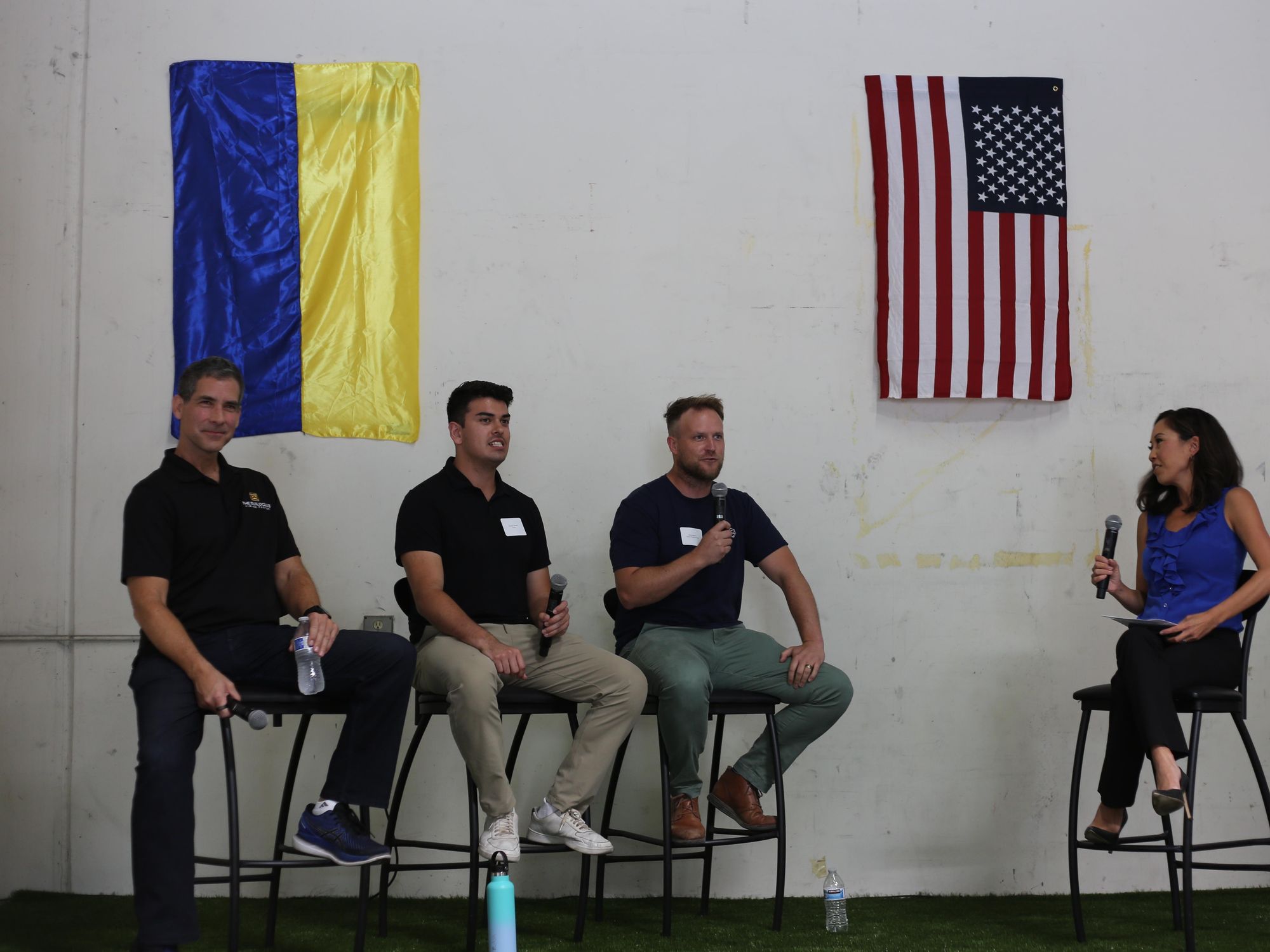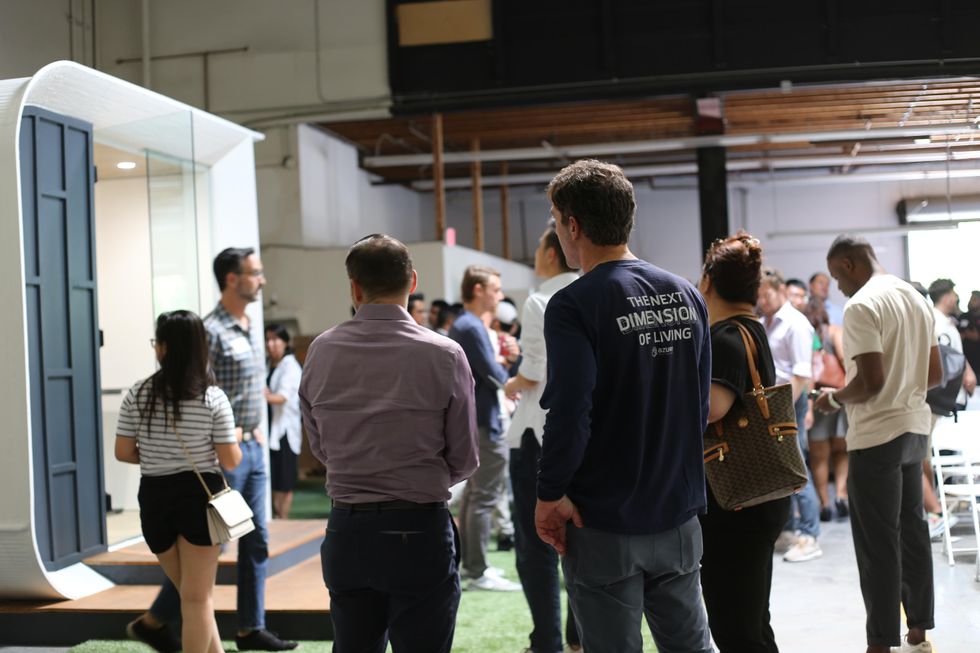LA Tech Week: ADUs, Legacy Roadblocks and the Landscape for LA's Booming Proptech Startups
Decerry Donato is a reporter at dot.LA. Prior to that, she was an editorial fellow at the company. Decerry received her bachelor's degree in literary journalism from the University of California, Irvine. She continues to write stories to inform the community about issues or events that take place in the L.A. area. On the weekends, she can be found hiking in the Angeles National forest or sifting through racks at your local thrift store.

Los Angeles has seen a rise in property technology (proptech) startups emerging over the last few years and the smaller players are beginning to take shape.
On Monday, at its home base in Culver City, 3D printing construction company Azure Printed Homes hosted a proptech meetup to kickstart L.A. tech week. A group of budding proptech founders shared successes, struggles and advice with those seeking to start their own companies. Renee Eng, anchor of Spectrum News 1 SoCal, moderated the discussion. Zuma co-founder Kendrick Bradley along with The BuildClub CEO and founder Stephen Forte shared the stage with Azure Printed Homes’ Ross Maguire.
“We actually took our units to market earlier this year,” Maguire said, “and we ran marketing ads for one week and we got picked up by various publications. This led to our pre-orders reaching up to 11.5 million which is spread across over 50 customers.”
But with any success comes roadblocks. Maguire admitted that the startup has struggled with production lead times due to the spike in demand of their accessory dwelling units (ADUs).
For Zuma’s Bradley, technology integration in the real estate space has been one of the biggest issues his team has encountered. The Santa Monica-based startup designs an AI leasing assistant for apartment complexes that aims to help property managers run efficient marketing.
“There’s a lot of legacy players in real estate," Bradley said, "which makes it very hard to integrate and design futuristic solutions.”
It's nothing new when companies that have long dominated the space reject or push back on new solutions.
While Bradley admits that there will always be pushback from so-called legacy players, he said that it comes down to having a really solid product and the ability to handle these customers.
Eng asked the panelists what advice they would give to an entrepreneur just starting out, and Forte quickly said that one must be flexible.
For example, Forte said that when he first launched his digital marketplace for building materials, it was based on the Instacart model that sold a variety of brands. Forte learned that nobody cared what piece of plywood showed up, whether it was from Martin Lumber or Home Depot. All that mattered to the customer was that the product arrived. So Forte took the feedback to his team and they rearranged the site to better cater to clients.
“Be highly convicted,” Forte said, “but hold them loosely because many of your assumptions may be wrong.” He also added that they should be willing to go along with the market.

- Here's What To Expect At LA Tech Week - dot.LA ›
- dot LA's Salon Looks at the Future of Proptech - dot.LA ›
- Top L.A. Proptech Companies in 2021 - dot.LA ›
- Culver City Startup Looking to 3D-Print ADUs in 24 Hours - dot.LA ›
- LA Tech Week: Women’s Health, the Metaverse & VC - dot.LA ›
- LA Tech Week: Powerlifting, Digital Nomads and Sexy Tech - dot.LA ›
- What People are Posting About LA Tech Week - dot.LA ›
- L.A. Tech Week: Surfing, Kabobs and Gen Z's NextDoor - dot.LA ›
- LA Tech Week: 3D Printed Homes, Micromobility and Metaverse - dot.LA ›
- Inclusion, Diversity and Coming Out in the Industry - dot.LA ›
- LA Tech Week: The Future of Art, TikTok and Takeout - dot.LA ›
- What Will Take To Make Modular Homes Mainstream? - dot.LA ›
- An Inside Look Into FCTRY LAb’s Shoe Making Tech - dot.LA ›
Decerry Donato is a reporter at dot.LA. Prior to that, she was an editorial fellow at the company. Decerry received her bachelor's degree in literary journalism from the University of California, Irvine. She continues to write stories to inform the community about issues or events that take place in the L.A. area. On the weekends, she can be found hiking in the Angeles National forest or sifting through racks at your local thrift store.



 Image Source: Revel
Image Source: Revel
